#university of the philippines diliman
Text
food trip x up diliman
i told my husband we should walk in up diliman as a form of exercise, but we ended up eating more than breaking a sweat haha.
this university is a haven of good street food. if you want to experience authentic pinoy eats that is neither healthy nor nutritious, this is the place to go! plus, you can burn it all off by walking around the campus.









we had fishball and sweet corn
at first, it was just supposed to be sweet corn because we forgot to withdraw money and we only had 100 pesos on hand. but thanks to g-cash, we had to tease our dopamine just a little bit more with a serving of fishballs!
craving satisfied.
2 notes
·
View notes
Text
UP lamunin mo 'ko😞
2 notes
·
View notes
Text
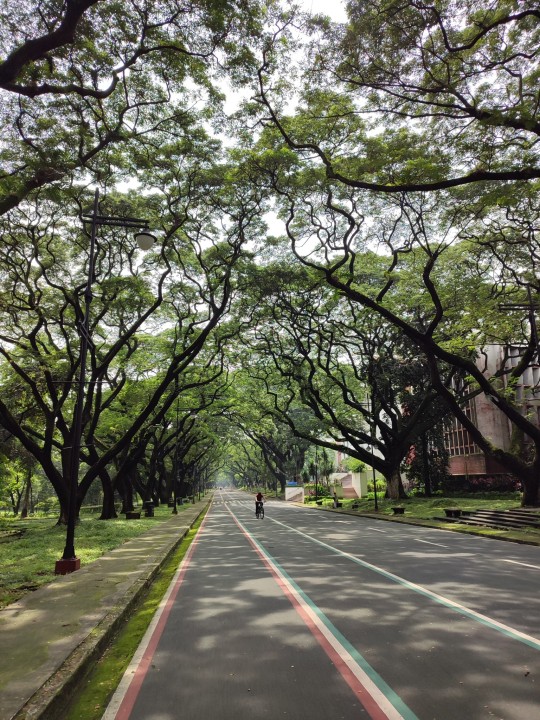





University of the Philippines, Diliman
technically done with my first year so here are some of my fav shots i took in the campus 🤧 see u in a couple of days again 🫠
#SGDJSKFKKSKFKFKG#i have no backlogs now#this feels so weird#🥹🥹#uni diaries#university of the philippines#up diliman
15 notes
·
View notes
Text
Excerpts from "Matatapos Din" from the hit musical "Mula sa Buwan," beautifully rendered by Gab Pangilinan and Myke Salomon during the book launch of UP Emeritus Professor of Film Nicanor Tiongson’s three new books on Philippine Theatre at the Ignacio Gimenez Gallery, UP Diliman on Monday, June 17, at 3-7 pm. The Ateneo de Manila University Press published the books. The UP College of Arts and Letters, The UP College of Mass Communication, and the UP CMC Film Institute co-organized the launch. The program also included a short review of the volumes by Rodolfo Vera, Joi Barrios-Leblanc, and Galileo Zafra, and the presence of National Artists Virgilio Almario (Literature), Alice Reyes (Dance) and Ramon P. Santos (Music). S Anril Pineda Tiatco and Missy Maramara served as color commentators and emcees. #nicanortiongson #upcmc #UPFI #GabPangilinan #mykesalomon #mulasabuwan #admupress
#unibersidadngpilipinas#ateneo de manila university#universityofthephilippines#up diliman#gab pangilinan#myke salomon#mula sa buwan#nicanor tiongson#philippine theatre
1 note
·
View note
Text
Miss Universe Quezon City 2024 results: Inaugural queen crowned in Diliman
beauty pageant: Miss Universe Quezon Cityedition: 1stdate: February 5, 2024venue: Seda Vertis North, Diliman, Quezon City, Metro Manila, Philippinesnational membership: Miss Universe Philippinescandidates: 15host: Ryan John Tresplacios performers: Johannes Rissler, Anthony Rosaldospecial guests: Beatrice Luigi Gomez, Gazini Ganadosjudges:
FINALISTS
PLACEMENTNAME (BARANGAY)Top 15Jocelyn Peñas…

View On WordPress
0 notes
Text
ABS-CBN Dateline Ph anchor Karmina KC Constantino @constantKC throws the most thought-provoking Qs, SMNI personalities contempt-cite, probable revoke of franchise (8hrs ago, live)
ABS-CBN Dateline Philippines anchor Karmina KC Constantino @constantKC throws the most thought-provoking questions on the contempt citation of SMNI personalities and the probable revocation of SMNI franchise (8hrs ago, live)
Produced by ABS-CBN News Channel, used here non-commercially for academic purposes (the video appears after the freeze-frame screenshot, also derived from the ABS-CBN news…
youtube
View On WordPress
#universityofthephilippines#UPDiliman#Ethics#Law#Law on Mass Media#media#media law#news#U.P. Diliman#University of the Philippines#Youtube
0 notes
Text





Filipinos join Palestinian refugees in calling for a ceasefire in Gaza during a march at the University of the Philippines Diliman Quezon City on May 19, 2024.
Photos by Raffy Lerma
#palestine#free palestine#philippines#free gaza#gaza genocide#save palestine#i stand with palestine#save gaza#palestinian genocide#b#gaza#all eyes on rafah
1K notes
·
View notes
Text
Editing and Workshop Services
I am offering editing and workshop services to fund my graduate school application and other needs. My USD rates are higher to take into account Paypal conversion, transfer fees, and value difference. Here are the editing services I offer:
Poetry Workshop: Critique and feedback on the craft of your poetry, focusing on the poetic line, sound, metaphor, and structure. This entails a line-by-line annotation and a discussion session via Zoom.
At least ₱4,000 / $90 for up to three (3) poems, one page each poem. Turnaround is two (2) weeks unless otherwise stated. Add-on service of ₱1,000 / $30 if you wish to turn the video discussion into written commentary.
Sensitivity Reading: Critique and feedback regarding sensitive content in the manuscript. This entails a file with organized comments and suggestions and the live commentary of the first read and, if necessary, a discussion session, either through chat or video.
At least ₱4,000 / $90 per short form fiction (up to 5,000 words). Optional add-on service of ₱2,000 / $55 should formal critique become necessary. Turnaround is two (2) weeks unless otherwise stated.
Full Editing: Critique and feedback on the form, structure, and content of the manuscript. This entails a file with organized comments and suggestions and the live commentary of the first read, the trackchanged file of the manuscript, and, if necessary, a discussion session, either through chat or video.
At least ₱7,000 / $160 per short form fiction (up to 5,000 words). Turnaround is two (2) weeks unless otherwise stated.
Payment: 50% must be paid upfront before I begin. The rest will be paid after I have delivered my comments.
If interested, please get in touch with me via message.


Credentials
I've had roughly ten years of experience in critiquing fiction, poetry, and writing in general: I was an instructor at the University of the Philippines Diliman, where I handled courses on writing, for two years; from 2014 to 2016, I was the workshop committee head of UP Writers Club; aside from having taken up workshop classes in UP Diliman, I was also a fellow for fiction in the 1st IWP Alumni Writers Workshop, 2nd Amelia Lapeña-Bonifacio Writers Workshop, 2nd GlobalGRACE-UP National LGBTQ Writers Workshop, and the 2021 Bread Loaf Writers' Conference.; and I was workshop panelist for the 2022 Malate Writers’ Workshop and 2023 Cordillera Creative Writing Workshop. I've also received prizes from the 2nd Gémino H. Abad Awards for Poetry and for Literary Criticism and the 69th Carlos Palanca Memorial Awards for Literature
164 notes
·
View notes
Text


PLEASE SHARE!
Opening chibi commissions to raise money for Filipino-Palestinian refugee families currently being housed at the University of the Philippines Diliman campus. Their stay however is only until December 21st, after which they’ll have to seek elsewhere for housing.
DM IF INTERESTED! Preferably @/kaytenten on instagram but if you dont have an account there, on here is fine.
41 notes
·
View notes
Text
idk where y'all get your doomed yaoi from but boy do i recommend the Freedom Wall of the University of the Philippines Diliman campus on facebook because oh my god????


#my posts#<- kinda#stolen from facebook#up diliman#up diliman freedom wall#shit is INSANE over there#highly recommend#doomed yaoi
10 notes
·
View notes
Text
Philippines Bans Online Casinos Linked to Scam Centers: An In-Depth Look
In a decisive move to curb criminal activities, Philippine President Ferdinand Marcos Jr. has ordered the shutdown of a vast network of online casinos that have been implicated in numerous illicit operations. These online casinos, known locally as Pogos, short for Philippine Offshore Gaming Operators, primarily serve players in mainland China, where gambling is prohibited. However, Pogos have increasingly been used as fronts for a range of criminal activities, including telephone scams, human trafficking, and other serious offenses.

A Troubled Industry
Under the presidency of Rodrigo Duterte, Pogos flourished as part of his administration's efforts to foster friendly relations with China. However, President Marcos, in his annual address to parliament, called for an end to the "desecration of our country." He criticized Pogos for masquerading as legitimate entities while engaging in financial scamming, money laundering, prostitution, human trafficking, kidnapping, torture, and even murder.
On Tuesday, the Philippines' gaming regulator announced plans to cancel the licenses of Pogos and phase out the sector by the end of the year. According to government estimates, the Pogo industry comprises over 400 licensed and unlicensed operations, employing around 40,000 people directly and indirectly. Despite generating an estimated 166.5 billion pesos ($2.9 billion) in annual revenue, the industry's economic costs are estimated to be much higher at 266 billion pesos annually.
Criminal Links and National Spotlight
The alleged connection between Pogos and criminal rings came under national scrutiny after a Pogo in a small town was discovered to be a front for a scam center. The town's mayor, Alice Guo, is accused of being a Chinese spy and is currently in hiding. Additionally, clandestine hospitals linked to Pogos were found to be offering plastic surgery services to fugitives and scam center workers to help them evade arrest.
Geopolitical Implications
Since assuming office, President Marcos has reversed the Philippines' pivot towards China, initiated by his predecessor Duterte, and has moved closer to the United States, the country's historic ally. Analysts suggest that the ban on Pogos could be interpreted as an effort to further distance the Philippines from China. Both nations are embroiled in a territorial dispute over the South China Sea, with tensions escalating in recent months.
"Pogos' presence has ceased to be a mere law and order problem. It has been linked to China's creeping 'occupation' of the Philippines for ordinary Filipinos," stated Jean Encinas-Franco, a professor at the University of the Philippines Diliman. She added that Marcos' decision could be seen as a rebuke to Duterte's open Pogo policy, potentially boosting his approval ratings ahead of the crucial mid-term elections in 2025.
Local Reactions
The ban on Pogos has been welcomed by various sectors within the Philippines. Trade Secretary Alfredo Pascual told local media that the decision makes the country more attractive to those seeking leisure, as Pogos have created a negative impression associated with violence. George Barcelon, chairman of the Philippine Chamber of Commerce and Industry, expressed his approval, stating that Pogos attract undesirable individuals and endanger the moral fabric of the nation.
The Path Forward
As the Philippines moves to dismantle the Pogo industry, the government faces the challenge of managing the economic and social impacts of the shutdown. While the ban is expected to improve the country's image and reduce crime, it will also require addressing the displacement of thousands of workers and finding alternative sources of revenue to compensate for the loss from the Pogo sector.
The bold decision by President Marcos to shut down Pogos marks a significant step in addressing the intertwined issues of crime and international relations. As the country navigates this complex transition, the global community will be watching closely to see the long-term effects on the Philippines' economy, society, and geopolitical standing.
#Philippines#FerdinandMarcosJr#Pogos#OnlineCasinos#CrimePrevention#Scam#HumanTrafficking#NationalSecurity
4 notes
·
View notes
Text
OPINION: DiliMall: Not a Mall for All

Photo credit: Lauren Nina Andres
For decades, the UP Shopping Center (SC) was a staple for the UP community. Filled with various stores from computer shops, school supplies stores, photocopying and bookbinding services, to food stalls, and beauty parlors, among others, the SC catered well to the needs of students, faculty, staff, and even residents of the campus. However, in 2018, the well-loved SC burned down, causing vendors to be displaced and its once affordable items and reliable services to no longer be easily accessible.
After the fire, the tenants experienced difficulties with relocating and rebuilding their establishments. According to an article by ABS-CBN, the University’s Business Concession Office drew lots for the affected business owners. Those that were picked were allowed to reopen in other locations on campus, such as Vinzon’s Hall, the Food Hub next to the Fine Arts Building, the Centennial Building, and the Acacia Building, among others. Some tenants were able to rebuild at the old tennis court nearby, provided by the administration as a temporary space, and others opted to reopen in Area 2. A month later, during the 1334th Board of Regents meeting held in April 2018, former UP President Danilo Concepcion announced plans for the rehabilitation of the SC into a more modern structure. And thus, “DiliMall” was born.
The move to rebuild and rebrand the SC as DiliMall was criticized by community stakeholders because the administration’s priorities seem to be misplaced as revealed in the proposed floor plan of the structure posted by the UP Diliman University Student Council (USC) last November 24, 2023. Robinsons Easymart and other known restaurants such as Mary Grace, Pancake House, and Army Navy take up the first floor, while the space given to UP vendors is found on the third floor. Not to mention, the vendors in the tennis court are at risk of being displaced once again since the space will be converted into a parking lot.
This begs the question of whether these “development plans” are truly for the benefit of the community or are merely ways for developers and businesses to capitalize on the university.
In light of this, last March 12, the “UP Not For Sale Network” was launched, consisting of various organizations namely, the USC, Shopping Center Association, UP Academic Workers Union, UP Workers Alliance, Movement for Democratic Governance, and Local College Councils. The network calls against the commercialization of DiliMall and pushes for the prioritizing of the UP Community.
DiliMall is not just the issue
DiliMall is not the first time the UP community has faced commercialization on campus. In an article by the Philippine Collegian, USC Councilor and Community Rights and Welfare Head Kristian Mendoza claimed that DiliMall is part of the implementation of the UP Master Development Plan (MDP), a land use policy approved by the Board of Regents in 2014 aiming to “proactively and systematically” develop UP’s land assets.
Before this, the UP Administration had already begun developing idle lands of the university, approving Ayala Land’s bid to convert 37.5 hectares of land into an information and technology hub in 2006—the UP Ayala Technohub.
The UP Integrated School (UPIS) community is familiar with this issue, as the old Grades 7-10 Building was replaced with the UP Town Center in 2013 by the same developer. From our 8-hectare land along Katipunan Avenue, we were moved to a building built and donated by the Ayala Corporation, a 5-structure facility with a main 4-story building, where the Narra Residence Hall once stood. The new 7-10 Building was budgeted at P180-million, from which P40-million was allotted for upgrades to the Grades 3-6 Building.
Only 10 years later, the Grades 7-12 Building is in a state of downfall, proving to be a great inconvenience and safety hazard to the UPIS community. During the Academic Year (A.Y.) 2022-2023, grades 3-12 students had to share the 3-6 Building since the structural integrity of the 7-12 Building was still being assessed. In A.Y. 2023-2024, although the 7-12 Building was cleared for use, parts of the building have been barricaded due to the degraded structure resulting in longer detours when moving from classroom to classroom and restricted movement among students, teachers, and staff.
The new Gyud Food Hub, which opened in December 2022, posed similar concerns as the development of DiliMall with failing to prioritize UP vendors that have long served the community. In this case, vendors displaced from the Main Library received a handwritten note from President Concepcion assuring them slots in the new facility. However, contrary to the administration’s promise, these vendors were not granted a space in the hub.
Moreover, the implementation of these establishments serves to exacerbate class disparity in the university by focusing on businesses catering to higher-income consumers that exclude students and lower-income community members. Again, the firms affected by the 2018 fire incident in the Shopping Center are still grappling with getting proper spaces allocated among them where established businesses have taken precedence over them.
Additionally, vendors and business owners are not the only ones being displaced by UP’s development plans, but as well as its residents. Homes and residences were demolished and claimed in accordance with the UP MDP. Some of the affected communities were Pook Village C, residents located at the UP Arboretum in 2020, and farmers from Pook Aguinaldo in 2021. These communities and families have been residing in the said areas for decades without any issues, only for them to be evicted from their homes; their livelihoods taken away to give space for “sustainable” infrastructure projects, without proper plans for relocation.
This further demonstrates how commercialization discriminates against marginalized individuals within the UP Community and society.
Additionally, the commercialization in UP Diliman may lead to the phase-out of small local businesses and vendors that have long been an integral part of the community. This greatly affects not only their livelihood but also the culture and diversity of the university’s environment.
Concerns and detractors from the UP community continue to rise towards this issue as stakeholders of the community are negatively affected and neglected by the university. Examples of affected sectors are dormitories, classrooms, and faculty buildings, all of which are experiencing problems with their space, functionality, and facilities.
It is important to maintain and improve the academic environments of UP as this will keep the university’s name, provide equal learning opportunities, liaise with the communities, and secure student wellbeing. These areas are fundamental in the institution for they facilitate learning and contribute towards its success as a top-ranked higher learning institution. To uphold the eminence that characterizes UP, we need to give priority to the conservation and upgrading of academic spaces.
Commercialization for who?
The university insists that converging with the private sector is beneficial as income generated from these rented spaces can be directed to academic and community needs. However, based on the 2016 audit report by the Commission of Audit, it is revealed that Ayala Land Inc. has 209.2-million pesos worth of unpaid obligations to UP. The amount comprises underpayments in rent income and late interest payments for the spaces at UP Technohub and UP Town Center. This raises the question as to why the university continues to commercialize its land when the previous corporation failed to keep up with its lease agreements.
Nevertheless, the university is still in dire need of other means of income. Government funding shortages can be pointed as to why the university insists on commercializing its land assets. Despite the fact that UP’s 2024 budget increased by P508-million, amounting to P24.771-billion this year, 80% of the funds were allocated for the university’s infrastructure projects. Sectors such as utility and maintenance incurred a P1.3-billion cut, and the budget for university operations was reduced for the new budgetary focus. According to an article by the Philippine Collegian, even if the funds for infrastructure were excluded, UP still suffered a P873-million cut. Additionally, P943-million will be cut for the provision of higher education services—which may result in fewer resources allocated to quality education for students. Taking all of this into account, it can be understood why commercialization may appeal to UP—as the university is getting increasingly pressured by almost all sides of its community to take action for its funding shortfalls.
Even so, our integrity as a public education and service institution must come first. It must be emphasized that UP serves as the nation’s model for quality education, and when we allow commercialization and privatization to be fostered within our institution, it may invite other educational institutions in the country to also be dependent on for-profit provisions. Reinforcing this notion, the presence of privatized businesses as stakeholders in the university may greatly influence university decisions, academic programs, and student policies.
In the end, UP must decide between prioritizing the community's interests or pursuing commercialization at the expense of its constituents. However, we’ve experienced the effects of this firsthand: the building we’ve sacrificed for profit forced us to settle for our current building–one that is deteriorating, crumbling piece by piece. We must ask ourselves: are we going to let this happen again? If the university chooses to commercialize its spaces for funding, attention, and care for its students and community must still be sustained.
Therefore, we need to oppose the commercialization of spaces and services in our university, assert our right to quality basic academic spaces and student facilities, stand with the vendors, employees, and families affected, and call on the administration to negotiate better terms with business partners—terms that put the benefit and interest of the UP community first. Furthermore, it is important to stress the need for more funding from the government to be able to run UP’s essential activities and programs successfully. We should come together to protect the good name of our institution and meet its responsibility to the UP community and the Filipino people.
// by Kela Alcantara, Grace Gaerlan, Xia Mentes
Sources:
Abello, L. T. (2024, February 6). UP students protest increasing commercialization of campus spaces. Philstar.com. https://www.philstar.com/headlines/2024/02/07/2331536/students-protest-increasing-commercialization-campus-spaces
Abello, L. T. (2024, March 12). UP community on ‘DiliMall’ opening: ‘Do not commercialize the services to the people’. Manila Bulletin. https://mb.com.ph/2024/3/12/up-community-on-dili-mall-opening-do-not-commercialize-the-services-to-the-people-1
Chua, C. (2022, July 6). UP’s Proposed 2023 Budget Set to Fund DaniCon’s Infra Splurge in His Last Year in Office. Philippine Collegian. https://phkule.org/article/586/ups-proposed-2023-budget-set-to-fund-danicons-infra-splurge-in-his-last-year-in-office
Daduya, J. (2023, January 28). “Nabudol kami!”: UP’s small-time vendors cry foul over Danicon’s unfulfilled promises.https://csspsinag.wordpress.com/2023/01/28/nabudol-kami-ups- small-time-vendors-cry-foul-over-danicons-unfulfilled-promises/
Gavilan, J. (2018, March 8). From photocopying services to Rodic’s: What’s inside UP Shopping Center. Rappler. https://www.rappler.com/newsbreak/iq/197714-things-to-know-up-diliman-shopping-center/
Gonzales, I. (2016, February 25). Ali reviews COA findings on unpaid obligations to UP. Philstar.com. https://www.philstar.com/business/2016/02/02/1549017/ali-reviews-coa-findings-unpaid-obligations-up?fbclid=IwAR2xWm74RVI8zYPn3EHJ9eUw0jaLyj3TMVziHv6i9RFSKZuwoHnDfz-zZsU
Lara, R. (2018). Decisions of the Board of Regents 1334th Meeting, 6 April 2018. The University of the Philippines Gazette, 49(3), 23-24. https://osu.up.edu.ph/2018/04/1334/
Lirio, A. (2023, December 24). An increase with setbacks: A look into the UP System’s 2024 budget. Tinig ng Plaridel.
7 notes
·
View notes
Text
Post originally from: Tinig ng Plaridel (Facebook) - Translated to English
PHOTOS: Various indigenous groups and Indigenous Peoples (IP) rights advocates gathered at the College of Social Work and Community Development (CSWCD), University of the Philippines: Diliman to commemorate the life and legacy of Bai Bibyaon Ligkayan Bigkay yesterday, June 5.
One of the first female leaders of the Manobo-Matigsalog tribe, Bai Bibyaon is famous as a defender of the rights of women, youth, ancestral lands and nature.
The program features cultural performances from various groups, with the goal of continuing the messages and legacy left by Bai Bibyaon.
"May his eternal legacy be a beacon to the Lumads and other natives," said Eufemia Cullamat of the SANDUGO alliance.
In 2017, the UPD CSWCD honored Bai Bibyaon with the Tandang Sora Award for his fight for the rights and welfare of the Lumad.
Photo by Richardson Tubo
#LongLiveBaiBibyaon
#DefendAncestralLands
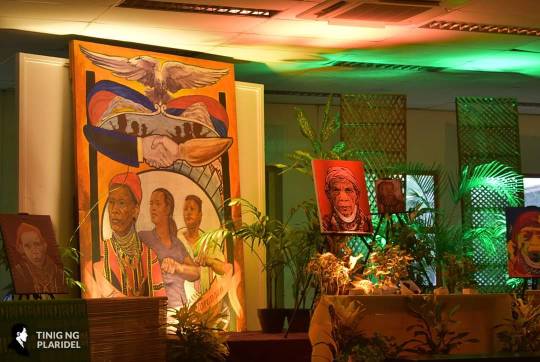

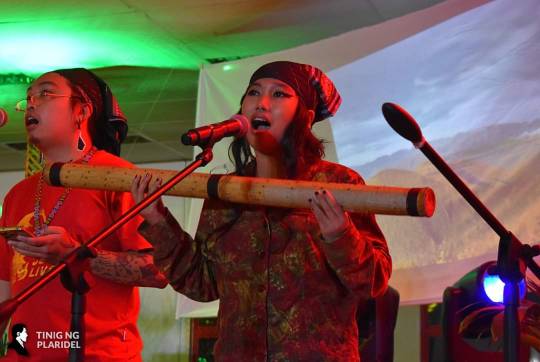
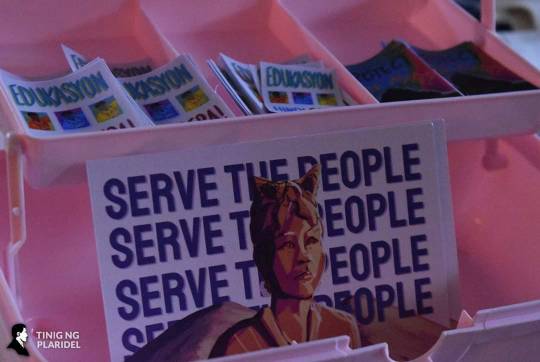
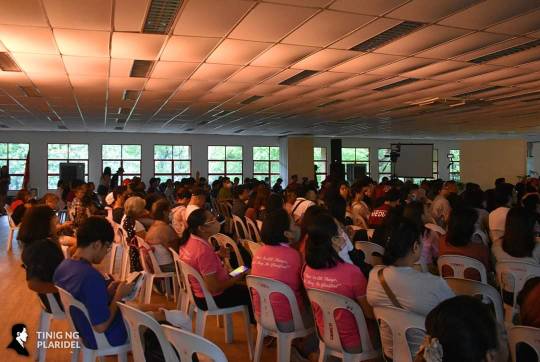
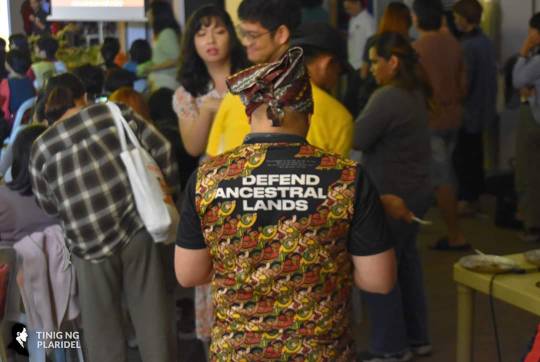
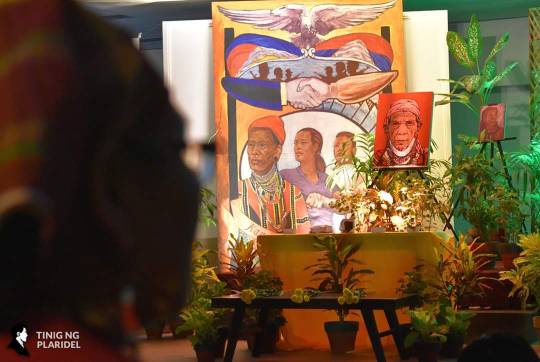

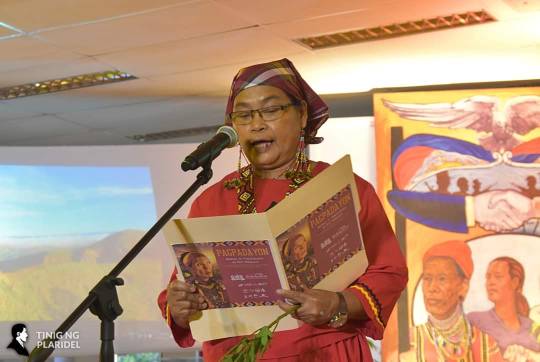
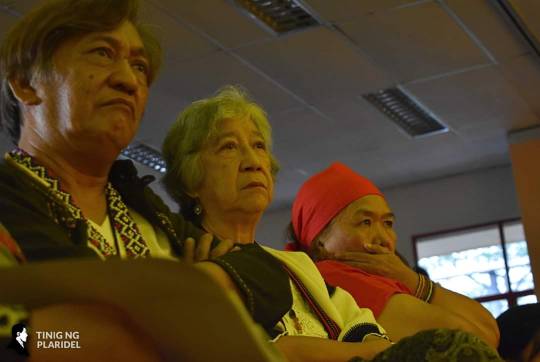
More photos on the link above, Tumblr has a photo limit on each post. Will also reblog with those other photos
4 notes
·
View notes
Text




University of the Philippines, Diliman
making a tradition out of posting my fav pics that i took while in campus during that academic year. i'll be a junior in two weeks ?! 😵💫
#uni diaries#if i had a shot for everytime my friends and i said#'third year na tayo'#i would be blackout drunk#time flies 😵💫#university of the philippines#up diliman
1 note
·
View note
Text
Excerpts from "Matatapos Din" from the hit musical "Mula sa Buwan," beautifully rendered by Gab Pangilinan and Myke Salomon during the launch of UP Emeritus Professor of Film Nicanor Tiongson’s three new books on Philippine Theatre at the Ignacio Gimenez Gallery, UP Diliman on Monday, June 17, at 3-7 pm. The Ateneo de Manila University Press published the books. The UP College of Arts and Letters, The UP College of Mass Communication, and the UP CMC Film Institute co-organized the launch. The program also included a short review of the volumes by Rodolfo Vera, Joi Barrios-Leblanc, and Galileo Zafra, and the presence of National Artists Virgilio Almario (Literature), Alice Reyes (Dance) and Ramon P. Santos (Music). S Anril Pineda Tiatco and Missy Maramara served as color commentators and emcees. #nicanortiongson #upcmc #UPFI #GabPangilinan #mykesalomon #mulasabuwan #admupress
#unibersidadngpilipinas#ateneo de manila university#universityofthephilippines#up diliman#gab pangilinan#myke salomon#mula sa buwan#nicanor tiongson#philippine theatre
0 notes
Text
very niche but Enjolras is a walking UP (University of the Philippines) Diliman stereotype
#this goes out to the filipino Les Mis fans#because nobody I know in real life would ever get this joke#les mis#enjolras#up diliman#sorry UP students but i need an audience#iskolar ng bayan enjolras
10 notes
·
View notes